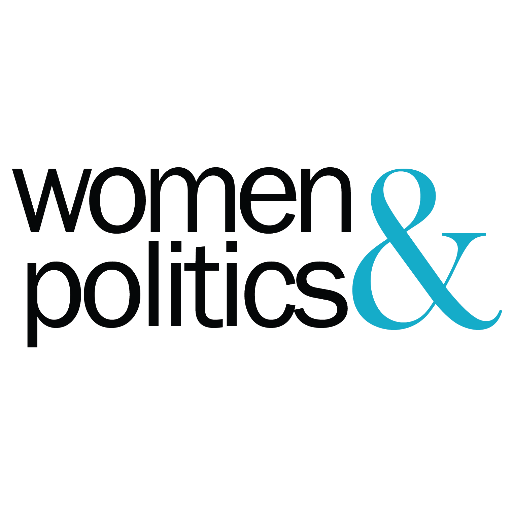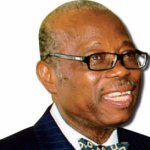Over the years, women have always supported and fully participated in elections. For instance, statistics show that during the 2015 general elections in Nigeria, there were 45,888,894 female registered voters while 22,944,984 were males. Despite the fact that women represent greater percentage of the electorate, they occupy less than seven percent of the elective and appointive positions in government. This, justly put, is not supposed to be the case.
Women, just like men, are important to the nation in all ramifications. They are vital to sustainable national and family development. The woman, as a man’s partner and comrade, has excelled in her family responsibilities and professional career. She has contributed, in so many ways, to social-political and economic development of the home and the society. Therefore, she is the symbol of strength and courage to her family and the nation, and as such, she should be given the opportunity to demonstrate these qualities in national political and leadership spaces.
Women are well-organised and are disciplinarians in their own rights. They have succeeded as administrators and managers in their various families and occupations. They have, over the years, contributed immensely to their homes through their earnings and sacrifice.
If behind any successful man in business, politics and other human endeavours, there is a woman, then, women can do well in politics and leadership too. They know how to efficiently handle resources. They know how to plan and handle things. They know how to balance the equation. The increasing rate of men’s irresponsibility and their inappropriate way of handling things, have no doubt, put a big question mark on their ability to proffer credible leadership and governance to the people. It is high time women came on board to steer the ship.
In Nigeria today, most political and leadership structures have been bastardised by a male-dominated political class, and these so-called male politicians who think this country solely belongs to them are benefiting and enriching themselves from this chronically ill structures that need urgent diagnoses and cure. Obviously, over the years, it seems these self-centred male politicians have no solution to the country’s many problems they have caused. Invariably, this is why women need to come in and salvage the problem.
Adequately armed with quality education and leadership skills, the contemporary Nigerian woman has distinguished herself in the home front and in her professional career. She has evolved and metamorphosed into a positive force to reckon with. She has succeeded virtually in all aspects of life and work that most men cannot but envy.
In recognition of this fact, most business and government establishments go after women and saddle them with strategic positions and appointments, which they end up performing well. As a result of these success stories, women need more leadership and political positions because men seem to have failed in these areas.
In specialised and professional careers such as law, medicine, science and technology, politics, et cetera, women have not only greatly excelled, but have also made the country proud, both at home and abroad. All over the world, there are women who have led and are still leading their country well. In the course of serving their country, they have showcased exceptional and exemplary leadership skills. They have proven to be hardworking and trustworthy. They have proven to be committed and dedicated to human development.
Angela Merkel has been the German chancellor since 2005. Her leadership skill has helped her to salvage Germany’s past unsavoury reputation. Margaret Thatcher was Britain’s first female prime minister. Throughout her long career in politics, she recorded some level of success that invoked deep admiration. Others include Ellen Johnson Sirleaf, the former president of Liberia; Elizabeth Domitien, who was the first prime minister of the Central African Republic; Janet Yellen, chairman of the Federal Reserve Bank, United States; Susan Wojcicki, CEO of YouTube, and the list continues.
ALSO READ: Court orders WAEC to produce ledger of Sen Adeleke’s result
Back here in Nigeria, there are a lot of women that have made the country proud. However, a few would suffice for this rendition. NgoziOkonji-Iweala is a good example. She is a world acclaimed economist, former minister of finance and former minister of foreign affairs. She introduced the practice of publishing each state’s monthly financial allocation from the federal government in the newspapers. This action went a long way in increasing transparency in governance.
Another glaring example is Amina Mohammed. She is currently the Deputy Secretary General of the United Nations and former Minister of Environment. Prior to these positions, she had served as the founder and CEO of the Centre for Development Policy Solutions. Other female Nigerian leaders worthy of mention include: Florence Ita Giwa, Abike Dabiri, Chris Anyanwu, Omobola Johnson, EmeUfotEkaette, among others.
Today, the world, especially Nigeria, is faced with a lot of socio-political complexities that require the involvement of women to resolve. It is high time women were given the opportunity to rule the world. Research has shown that people who work under women are better engaged than those who work under men. Women may seem physically weaker than men, but not emotionally and intellectually. They are not only trustworthy and accountable, they can also inspire and motivate others to a higher cause.
Emmeline Pankhurst (1858 – 1928), a British campaigner for woman suffrage, said, “If civilisation is to advance at all in the future, it must be through the help of women, women freed of their political shackles, women with full power to work their will in society.”Giving women the opportunity to be in the driver’s seat to showcase a different side of good leadership and governance, is no doubt, what the world, especially Nigeria, needs to rewrite her history for the betterment of the country.
Tosin Adepoju is an intern with the Nigerian Tribune





